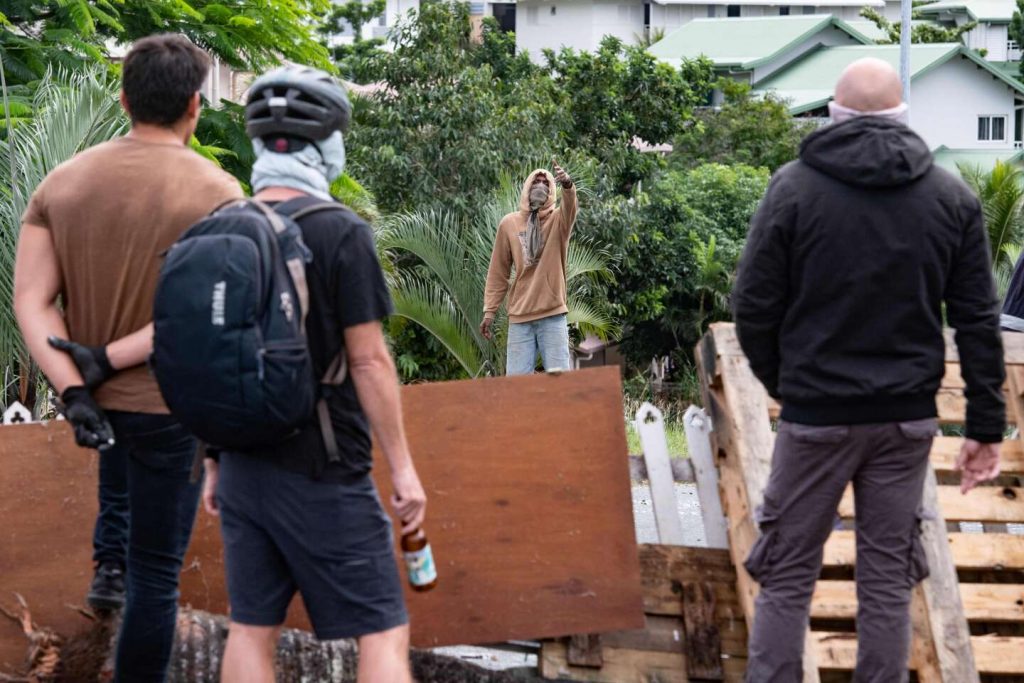Masked residents hold a barricade at the entrance to Tuband, in the Motor Pool neighborhood of Nouméa, on May 15, 2024. They were born in New Caledonia or have been living there for more than ten years. For those who are called, or understand themselves to be called, the “metros” and the “zors” (mainlanders), the violent outburst of young Kanaks on May 13 in Nouméa represents a huge shock. Many around them are already thinking about leaving the country, plunged into chaos since the reform of the electoral system for local elections mobilized the pro-independence movement.
After a week of crisis attributed to the incompetence of political leaders of all stripes, several of these individuals testify. Contacted by phone on Saturday, May 18 and Sunday, May 19, they have requested to speak anonymously out of fear of reprisals. Emma, 42, works as a psychologist in a hospital and has been living in Nouméa for over ten years. Medical professionals classified as “essential” have had to join their service since Tuesday, May 14 by maritime shuttles (now stopped) or by helicopter, with one doctor even having to hide in an ambulance to pass through roadblocks. Emma had to stay at home, stuck.
“We are in shock, in astonishment. We felt a wave of violence from young Kanaks, even at the expense of their elders, as dialysis centers were attacked and some people in several neighborhoods can no longer eat. We were not prepared for this,” she explains. “We work with the Melanesian population, patients in precarious situations, and we have many Kanak colleagues. We had the impression of living together, that it was not going so badly, while remaining aware of the sometimes irreconcilable nature of the two cultures.”
Emma, however, is not surprised. “The racism of the Caldonians, the hate exists. It explodes there, on the roadblocks. The basic Caldoche has brought out the weapons and is ready to shoot. The Kanaks of the CCAT have been fed on hatred of the colonizer. And we think: thirty years of peace for this!” Catherine, 50, a teacher, has been in New Caledonia for over twenty years. “We’ve been hit by a bomb, and after a week of violence, we are psychologically exhausted,” testifies this distraught teacher. In my neighborhood, fires, dispersal grenades, and firefighter interventions have been happening endlessly. I feel like some people want to bring the country down. I no longer feel the ideology, but only the stupidity in its most horrible form, and like everyone else, I wait for the end of the nightmare.”
The territory is thrown forty years back, and the voices of those, from all sides, who have worked positively to evolve New Caledonia are “suffocated,” according to this resident. The situation is causing deep psychological strain on the population, with many living in fear and uncertainty. The deep-rooted issues of racism and hatred between different ethnic groups in New Caledonia have come to the fore, and many are grappling with their feelings of shock and disillusionment. The situation is further complicated by the political dimensions of the crisis, with tensions between pro-independence groups and loyalists intensifying.


